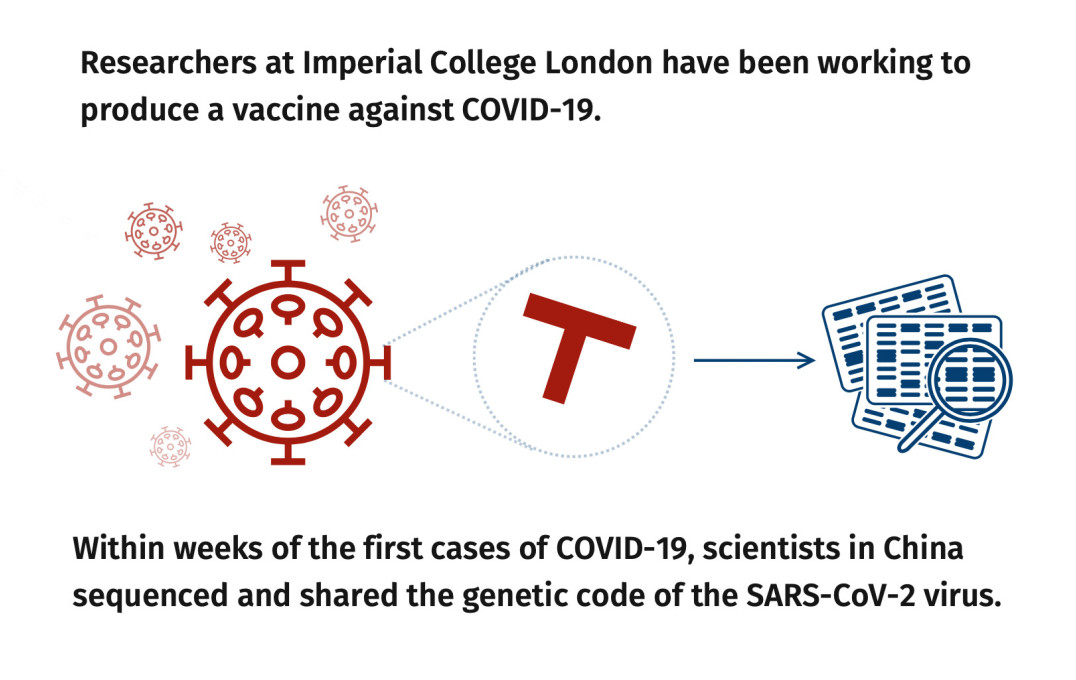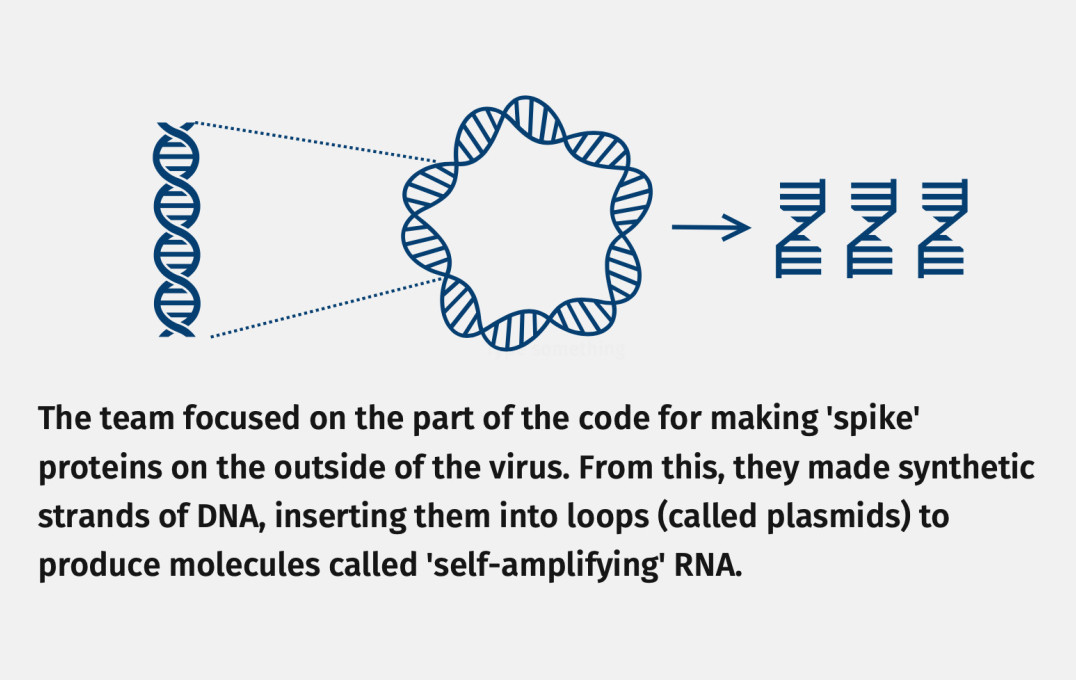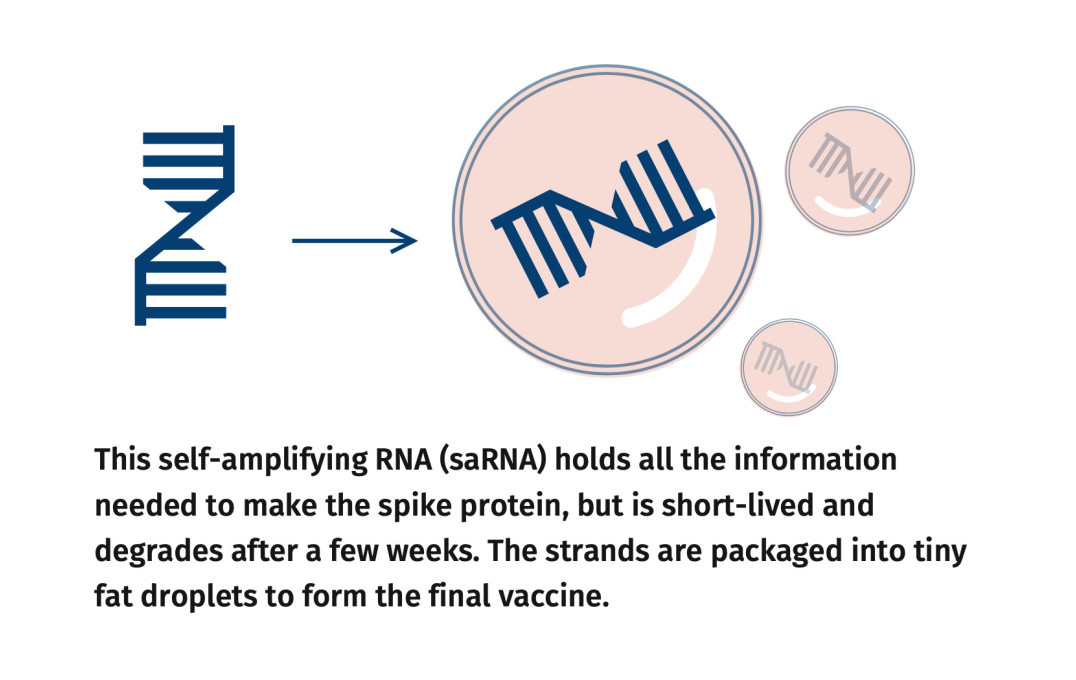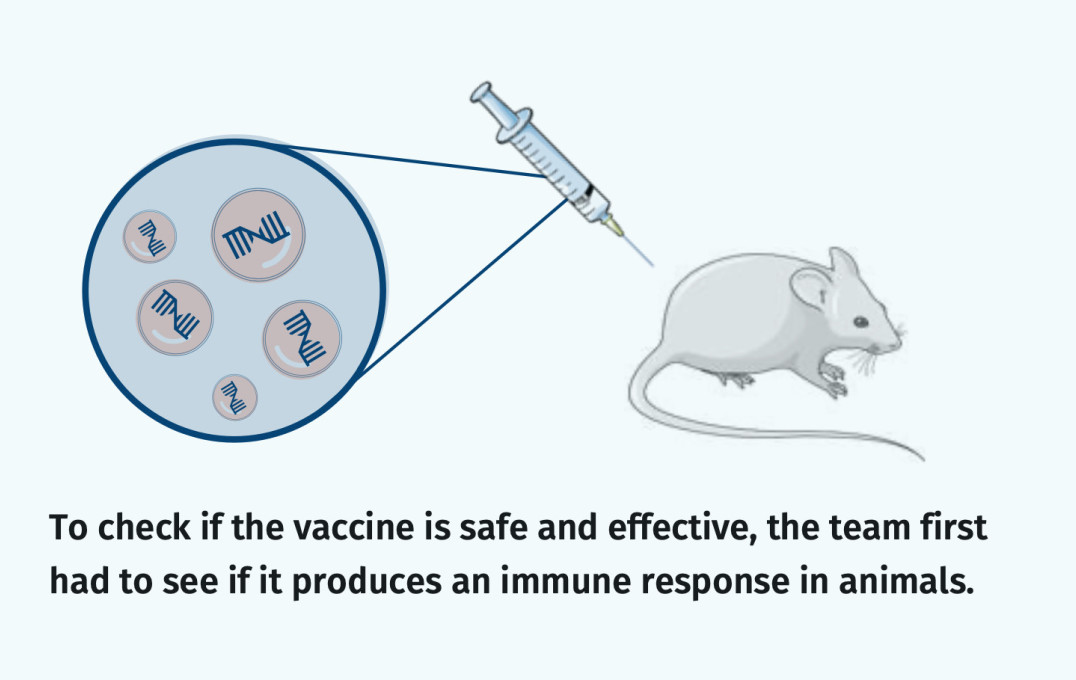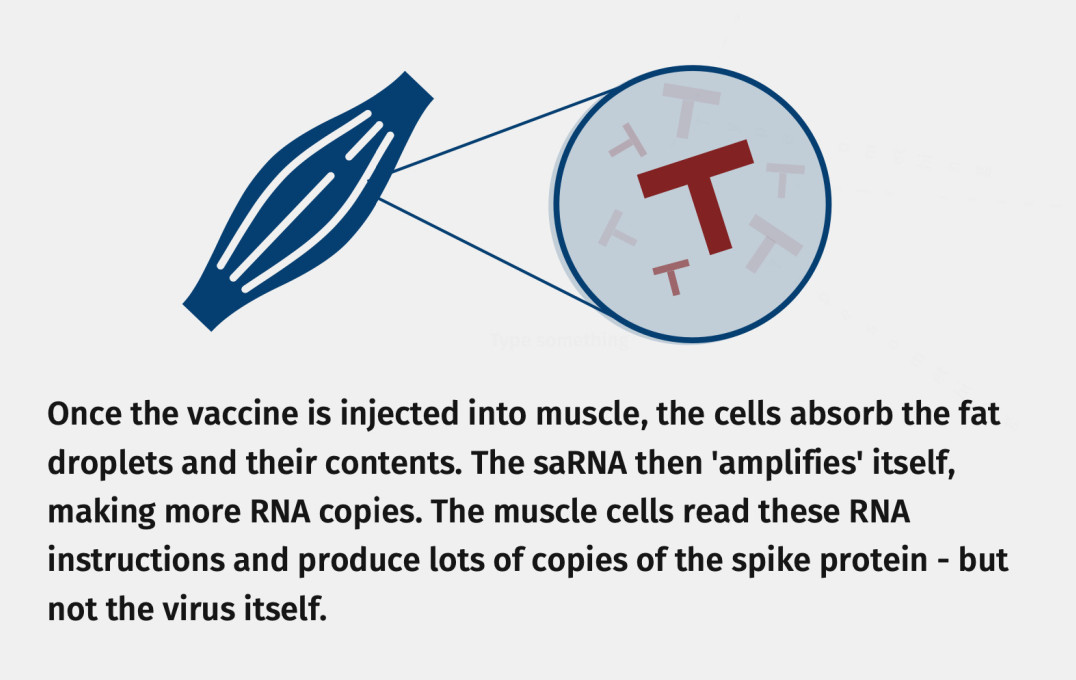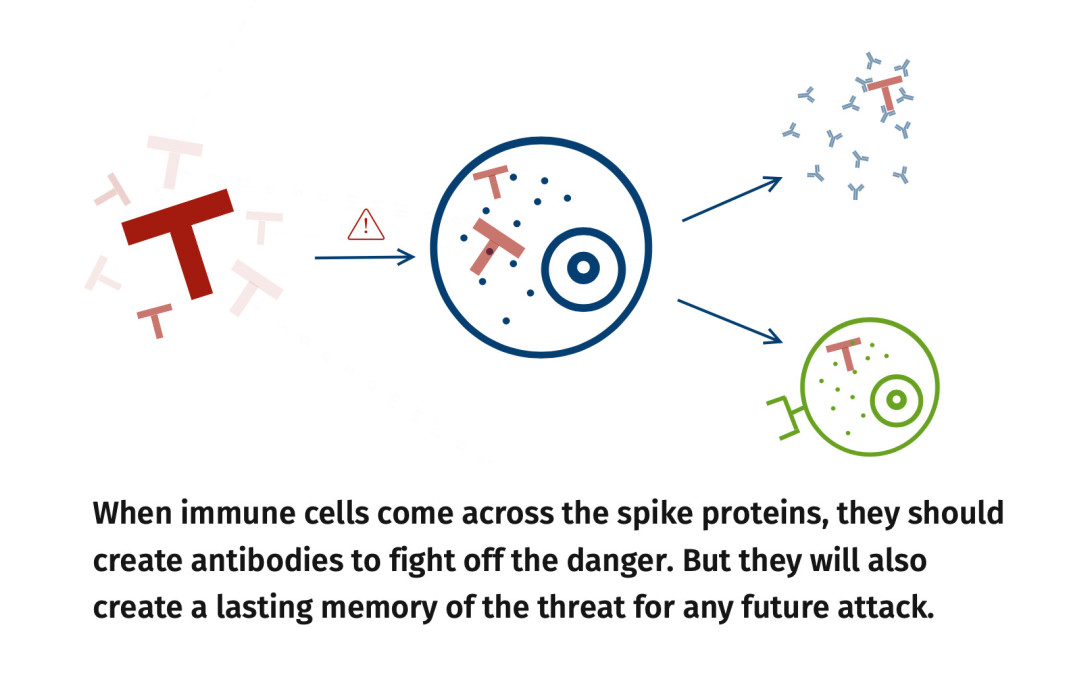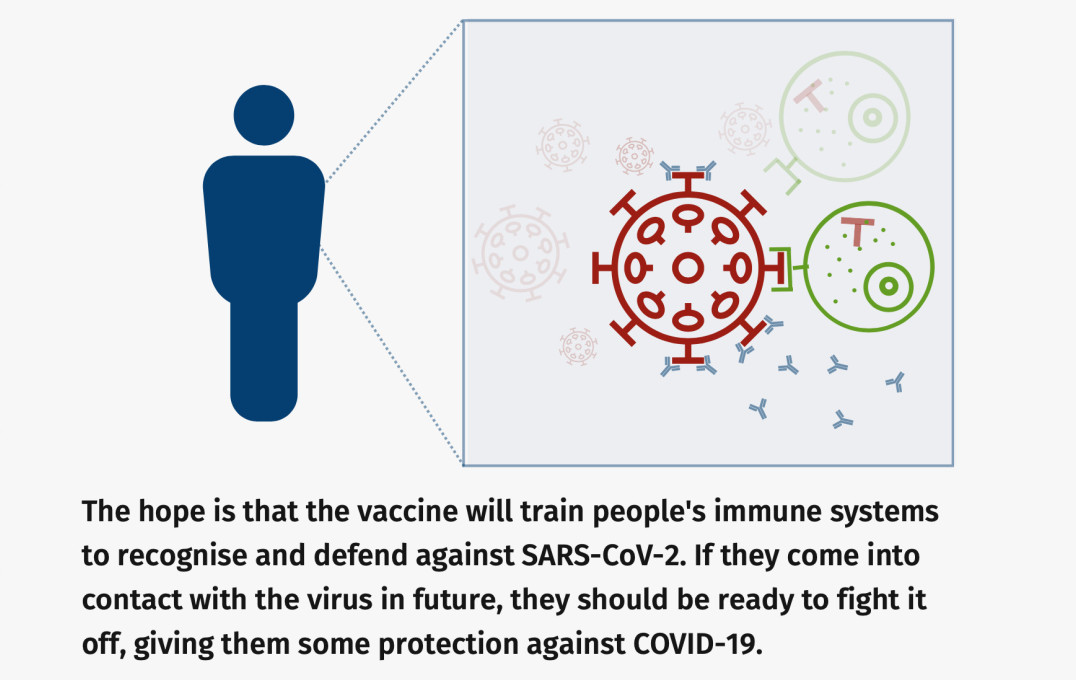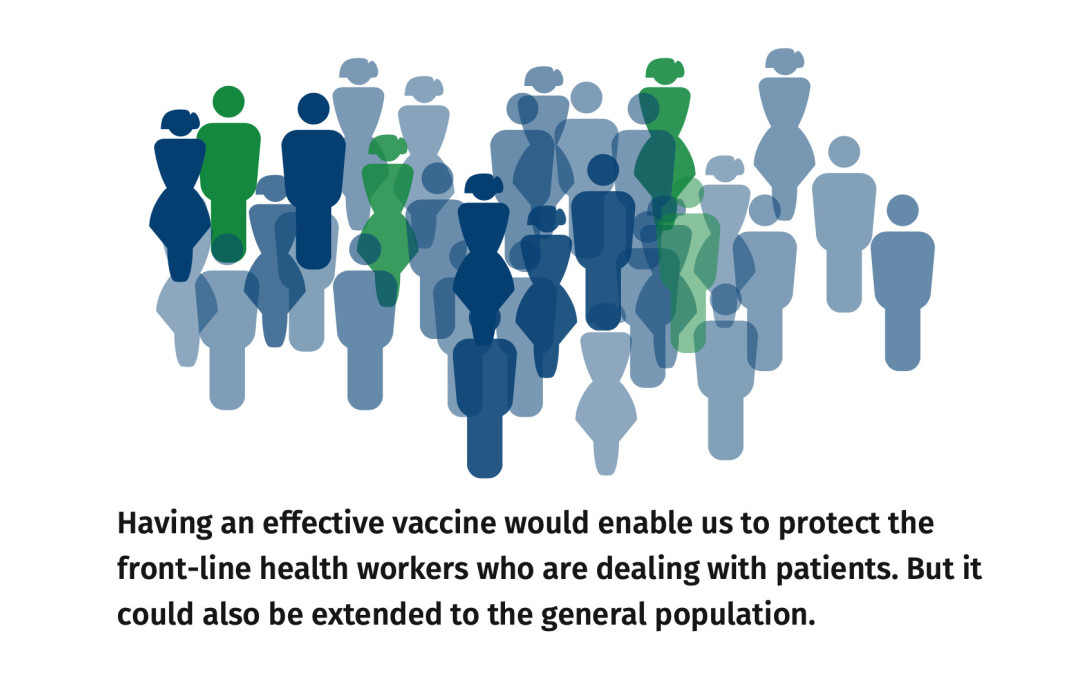First volunteers receive Imperial COVID-19 vaccine
by Ryan O'Hare
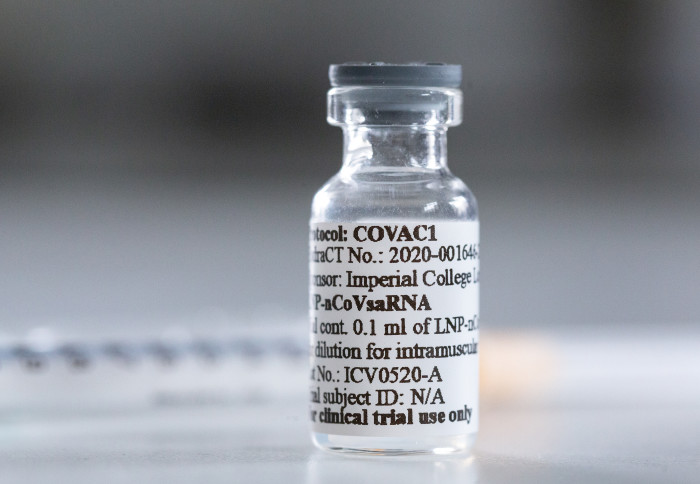
The first healthy volunteers have now received a candidate coronavirus vaccine developed by Imperial researchers.
The clinical team, who delivered a small dose of the vaccine to participants at a West London facility, are closely monitoring the participants and report they are in good health, with no safety concerns.
The first volunteer asked to remain anonymous.
Imperial College London’s vaccine candidate is being developed and trialled thanks to more than £41 million in funding from the UK government and a further £5 million in philanthropic donations.
The trials are the first test of a new self-amplifying RNA (saRNA) technology, which has the potential to revolutionise vaccine development and enable scientists to respond more quickly to emerging diseases.
The vaccine has undergone rigorous pre-clinical safety tests and in animal studies it has been shown to be safe and produced encouraging signs of an effective immune response.
'Significant milestone'
Dr Katrina Pollock, from Imperial’s Department of Infectious Disease and Chief Investigator of the study, said: "We have reached a significant milestone in this ground-breaking study with the first dose of a self-amplifying RNA vaccine delivered safely.
"We are now poised to test the vaccine in the dose evaluation phase before moving forward to evaluating it in larger numbers.
We have reached a significant milestone in this ground-breaking study with the first dose of the vaccine delivered safely Dr Katrina Pollock Clinical Lead on the study
"It is a privilege to be part of this important work and the team are extremely grateful for the enthusiasm and support from our volunteers, without whom clinical research would not be possible.
"It is a tribute to science and the widespread desire to assist the COVID-19 vaccine programme that thousands are signing up to be a part of these vaccine studies. I look forward to providing more updates on our progress as we gather more data."
Professor Robin Shattock, from the Department of Infectious Disease at Imperial and who is leading the work, said: "The first participant marks an important step for our saRNA vaccine platform, which has never before been trialled in humans.
"We now eagerly await rapid recruitment to the trial so that we can assess both the safety of the vaccine and its ability to produce neutralising antibodies which would indicate an effective response against COVID-19. I look forward to our progress in the coming months."
Rapid recruitment
One person has now received a first dose vaccine, with a second booster dose to follow within four weeks. Several others are expected to receive a first dose over the coming days.The clinical team will continue to monitor all participants closely for safety, as well as looking to see if they produce antibodies against the SARS-CoV-2 virus.
In the initial stage of the trial, 15 healthy volunteers are receiving the vaccine – starting with a low dose and escalating to increasingly higher doses for subsequent volunteers – to assess safety and to find the optimal dosage.
Over the coming weeks, 300 healthy participants are expected to receive two doses of the vaccine. If the vaccine is safe and shows a promising immune response in humans, then larger trials would be planned for later in the year.
The research has been supported by the UK Medical Research Council, UK Research and Innovation, The Department of Health and Social Care, the Department for Business, Energy and Industrial Strategy, the National Institute for Health Research, along with numerous philanthropic donations.
Professor Fiona Watt, Executive Chair of the Medical Research Council, which helped fund the trial, said: “This astonishingly fast vaccine development – compared to the years it normally takes – is a result of the remarkably hard and collaborative work of the scientists, trialists and regulators.
"These human trials will contribute to global efforts to find a vaccine, which is our best hope for preventing COVID-19 and enabling life to return to normal.”
Imperial has formed a new social enterprise VacEquity Global Health (VGH), in partnership with Morningside Ventures, to rapidly develop vaccines and distribute them as widely as possible in the UK and overseas, including to low- and middle-income countries.
For more information on the Imperial COVID-19 vaccine, including how to register as a volunteer, please visit the Imperial COVID-19 Vaccine Trial website.
Article supporters
Article text (excluding photos or graphics) © Imperial College London.
Photos and graphics subject to third party copyright used with permission or © Imperial College London.
Reporter
Ryan O'Hare
Communications Division

